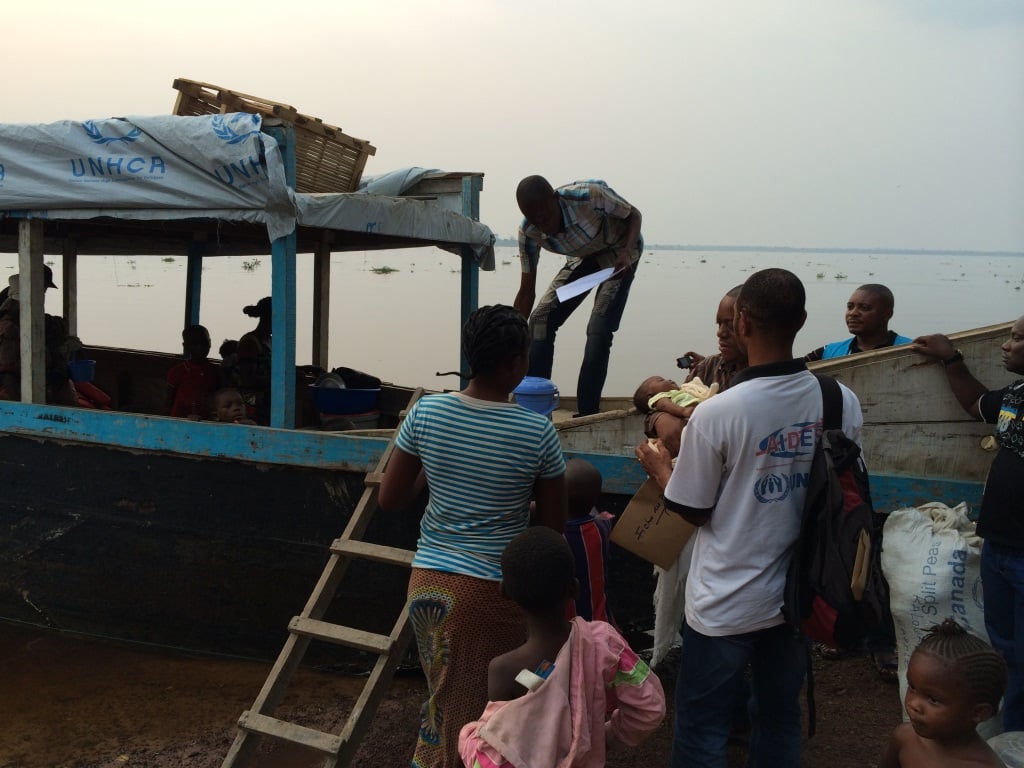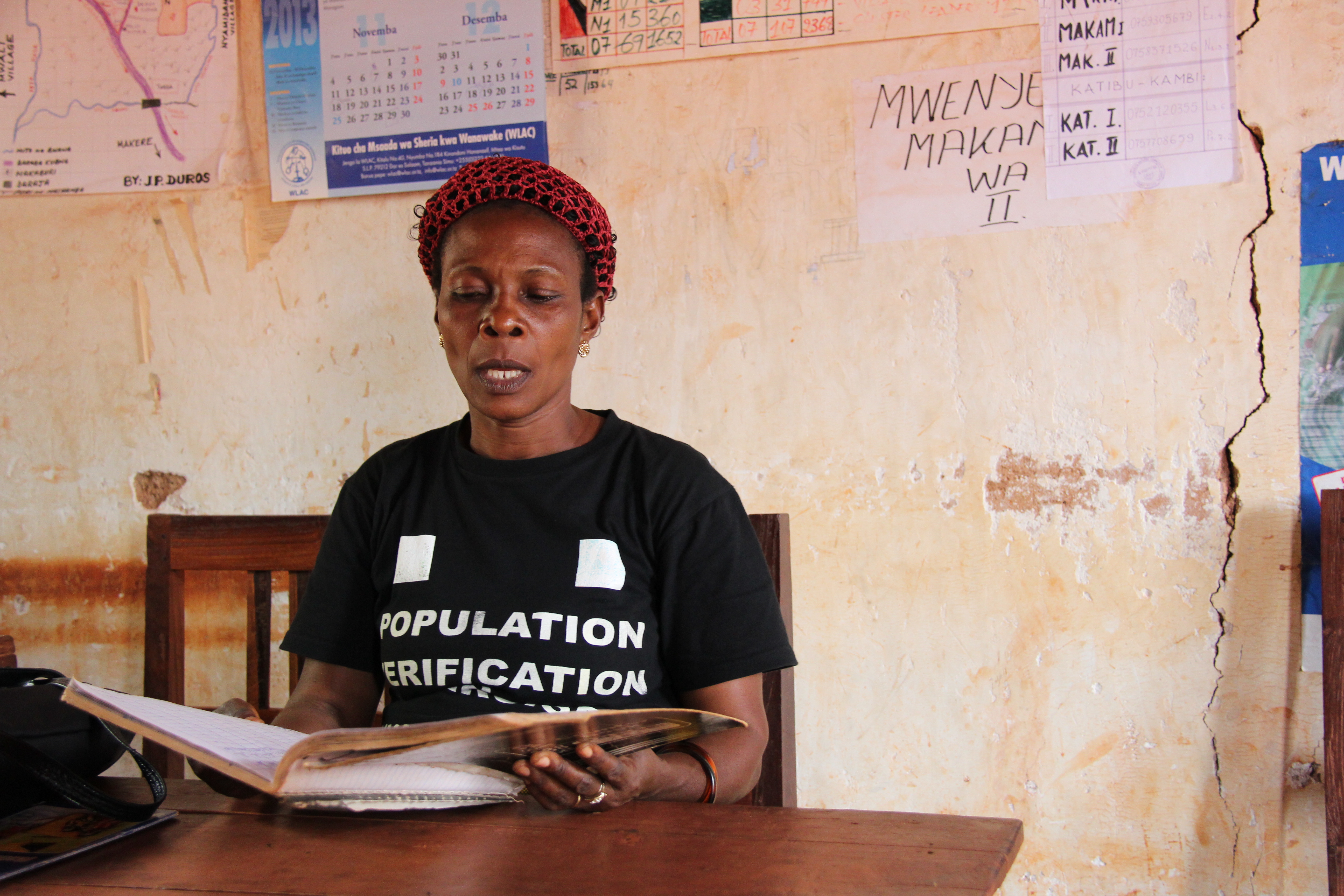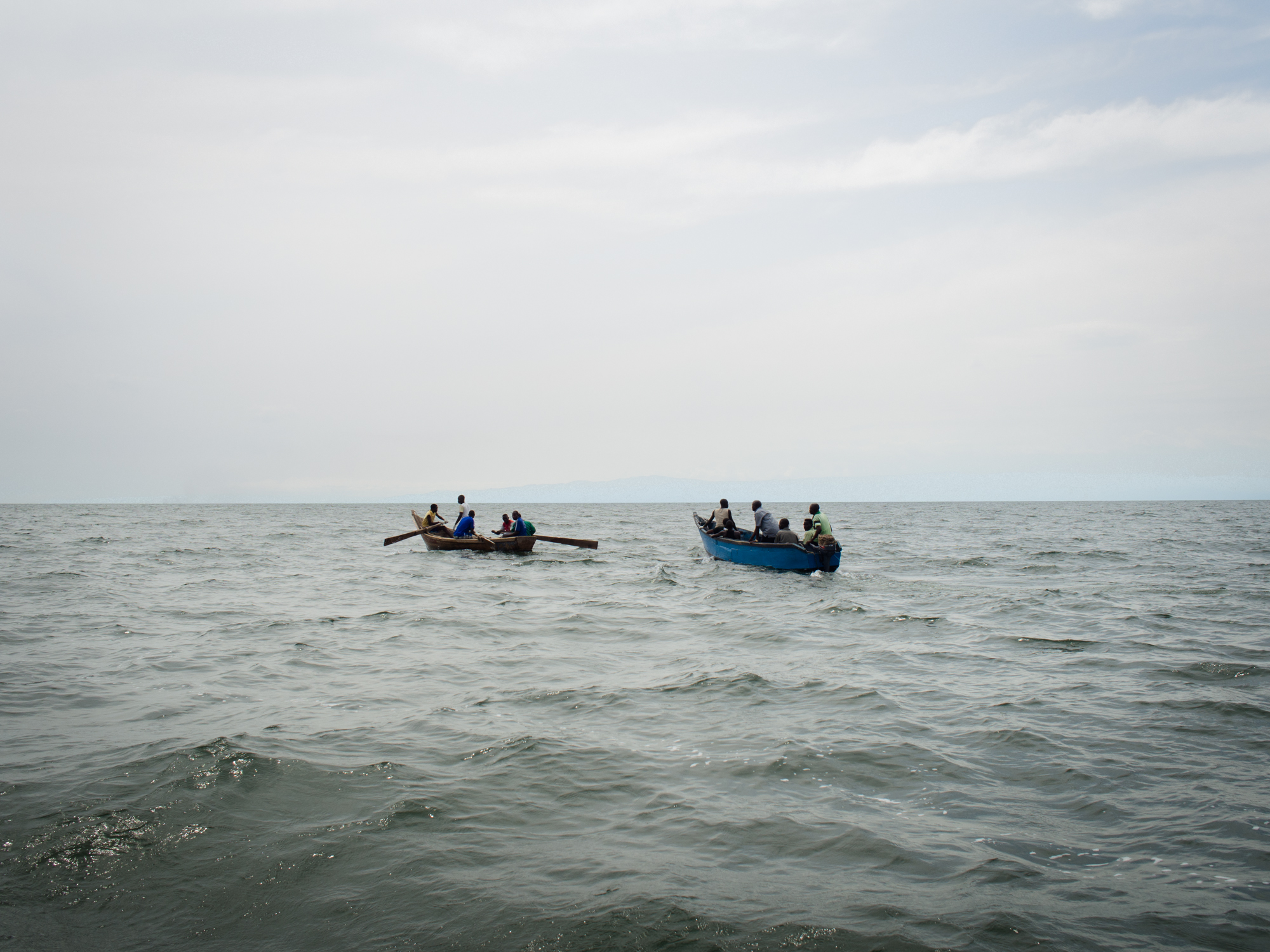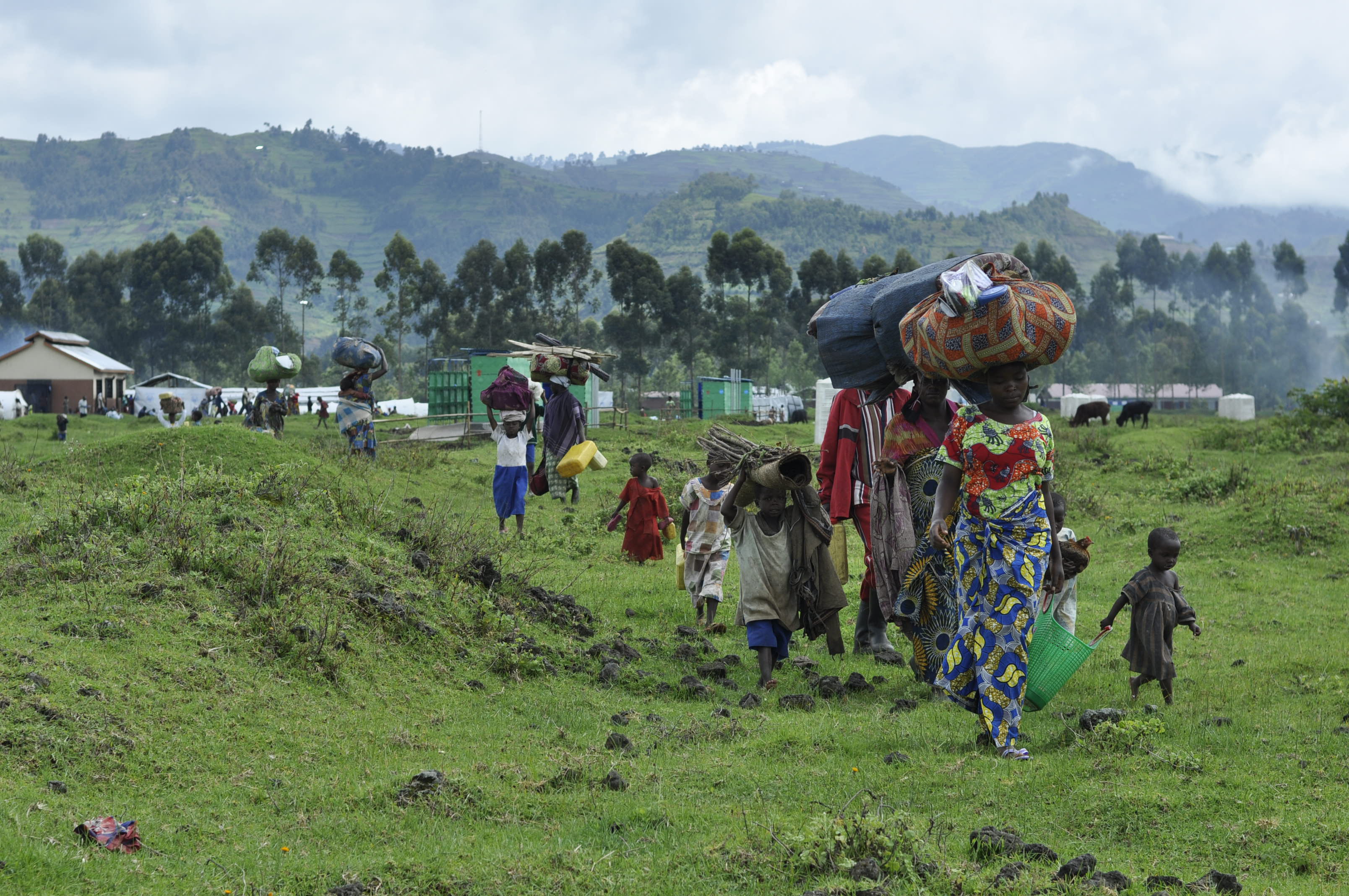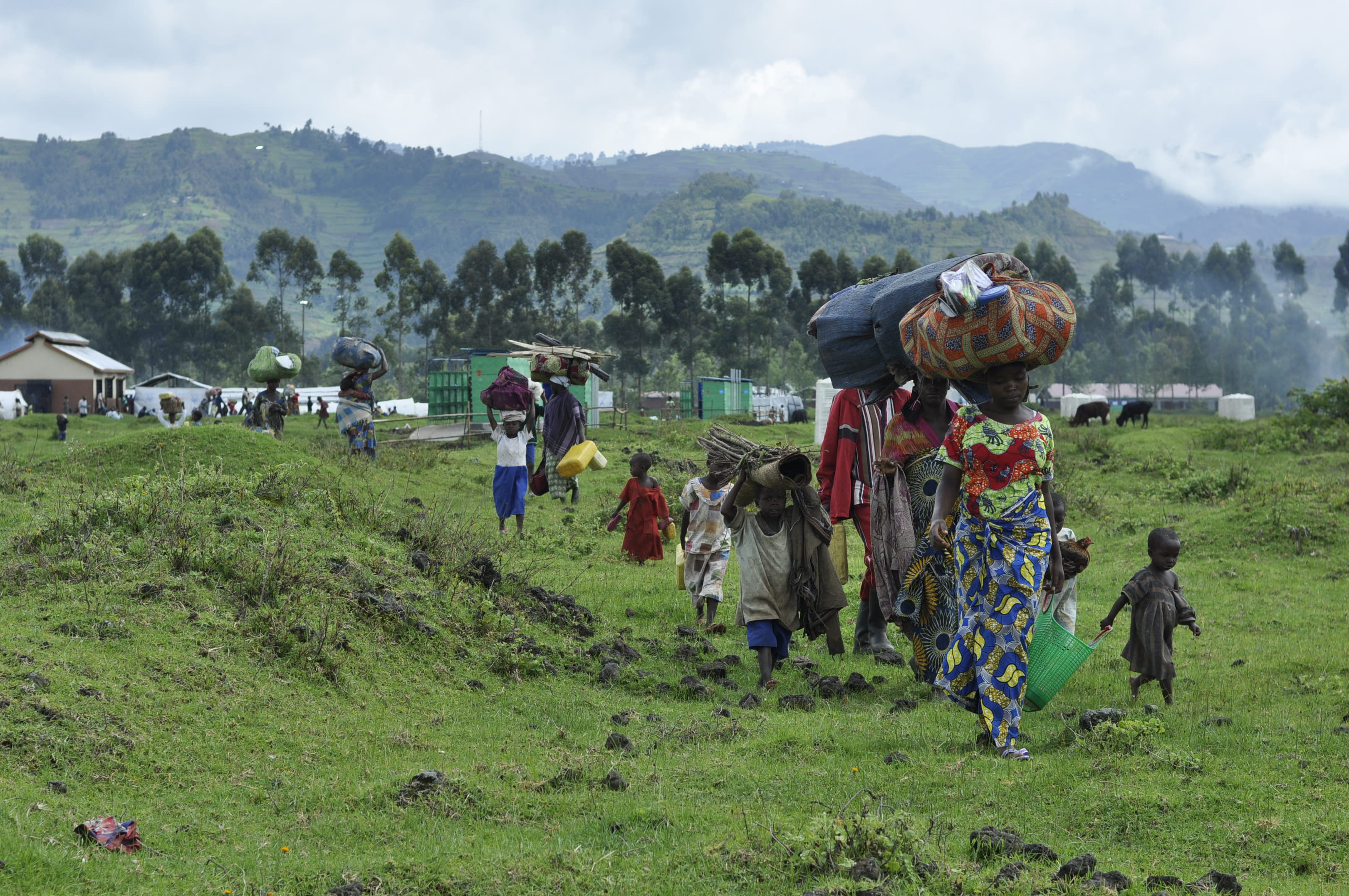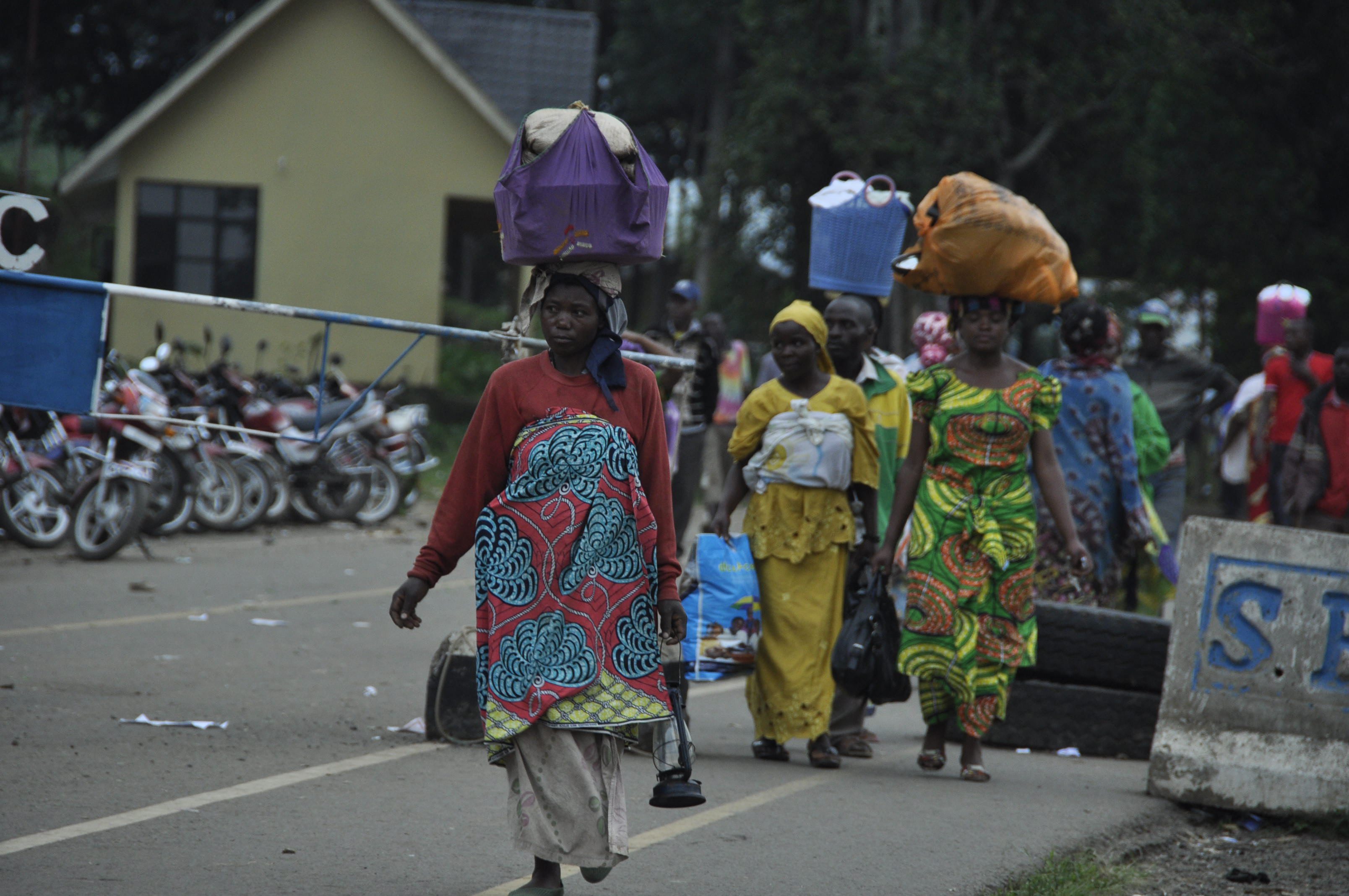Inter-agency mission assesses return conditions in North Kivu region
Inter-agency mission assesses return conditions in North Kivu region
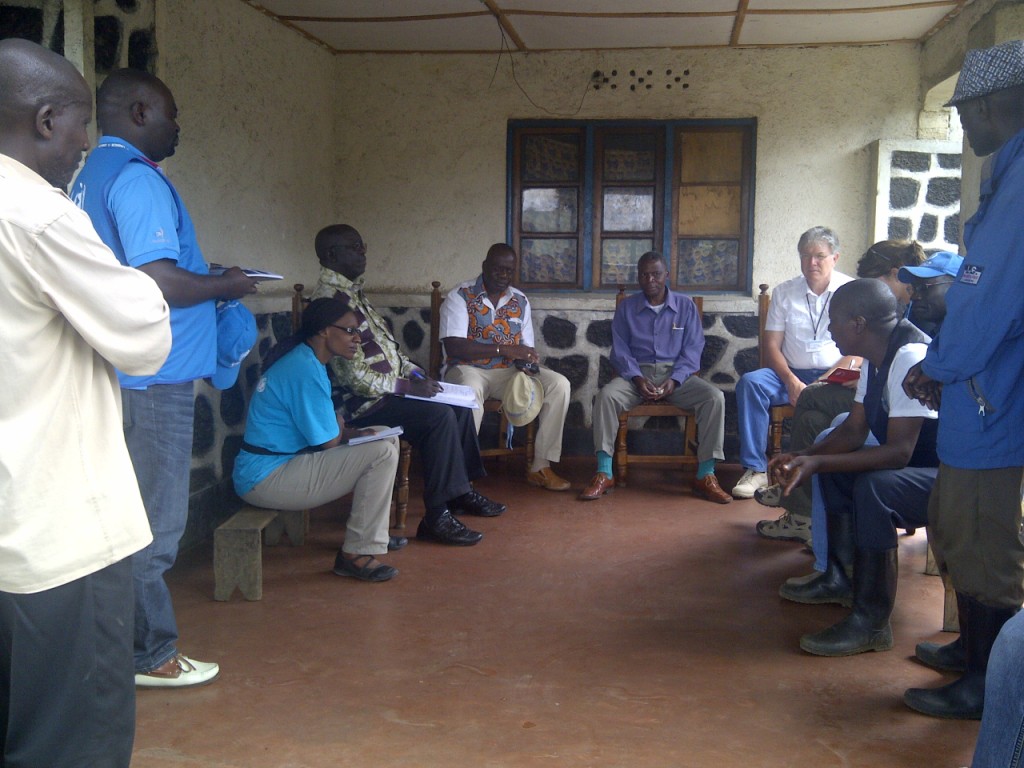
GOMA, Democratic Republic of the Congo, November 30 (UNHCR) - The UN refugee agency has led a joint mission to assess security conditions in an area of eastern Congo that thousands of recently displaced people have started returning to and found the situation generally "calm."
UNHCR and its humanitarian partners would like to provide transport and assistance for the most vulnerable among those who want to return to their homes in North Kivu province's Rutshuru territory. But the refugee agency insists that returns must be voluntary and that it should be safe in return areas before people are taken back.
UNHCR's Kouassi Lazare Etien said the mission travelled Thursday from Goma, capital of North Kivu province, to Kiwanja and Rutshuru some 75 kilometres to the north. They also visited Rugari, Biruma and Kibumba districts. Others taking part included the World Food Programme, the UN Children's Fund (UNICEF), the UN Office for the Coordination of Humanitarian Affairs as well as non-governmental aid organizations and the Civil Affairs Section of the UN peace-keeping mission.
Etien, head of UNHCR's office in Goma, said the participants were analyzing and discussing their impressions on the situation in Rutshuru, from which tens of thousands of people fled this month after the rebel M23 movement fought with government troops and captured the provincial capital on November 20.
More than 6,100 families, or almost 20,000 people, have returned this week to Rutshuru from camps or spontaneous settlements for internally displaced people in and around Goma, according to UNHCR partner FEMISA.
"We met many IDPs along the road who had returned home," said Etien, adding that some complained that their homes had been broken into and possessions or crops stolen while they were away.
But he said generally, the situation appeared to be calm and there were no roadblocks on the road. But some people complained of banditry, mainly at night. In Biruma for example, most of the inhabitants said they spend the night in the bush for security reasons.
"We saw from the road normal business . . . There is a steady return to normal life," he noted, while however noting: "There is still room for improvement."
The assessment mission was aimed at helping UNHCR and its key partners determine if it was safe to return and of they could help the vulnerable go back. Etien said they would release their mission report once it had been completed and agreed on by all parties.
Meanwhile, the situation in Goma also remains relatively stable. The electricity is back but UNHCR has received reports of looting and carjacking. Etien also said there was some uncertainty about when the M23 would withdraw and how far. "Yesterday, we saw some of them withdraw in pick-up trucks," he said, while adding: "They are still around."
The UNHCR official said there was concern about what would happen during a handover of power in Goma. He confirmed that the airport at Goma was still closed.
He said UNHCR and its partners were discussing further aid distributions. Tens of thousands of people have received food and non-food aid since last weekend. There is a need for family shelters, blankets, kitchen sets, tarpaulins, plastic rolls, mosquito nets, mats, jerrycans, bars of soap and sanitary towels.
Some IDP sites are being supplied with water brought in by truck, but to keep IDPs from taking untreated water from the lake. In Bulengo camp, people have been taking water from Lake Kivu. British aid agency Merlin has set up water treatment equipment in the site.
The fighting that erupted on November 15 forced 130,000 people to flee their homes and seeks shelter in and around Goma. A further 18,500 fled to South Kivu from North Kivu since early November. There are more than 1 million IDPs in the two provinces.

